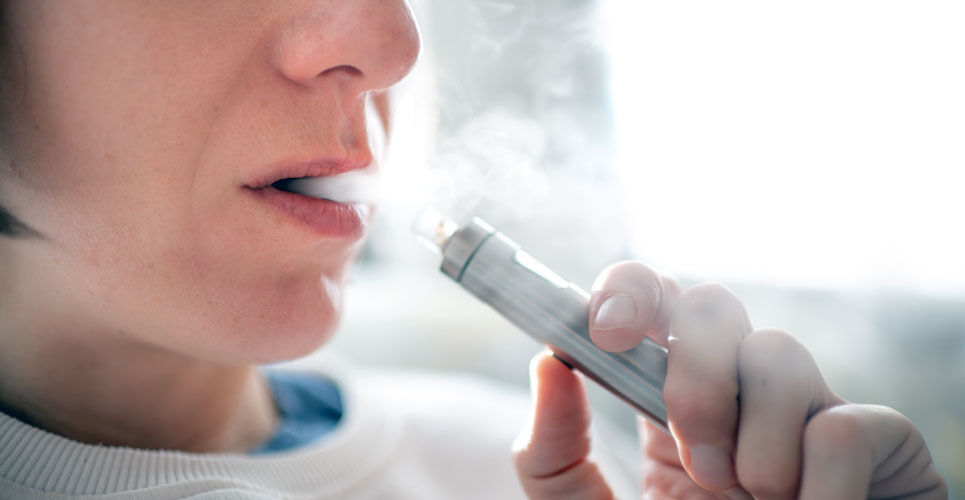The DNA damage within oral epithelial cells induced by vaping in those who have never smoked is similar to that in current exclusive smokers
The DNA damage that occurs to oral epithelial cells among electronic cigarette (i.e., vaping) users and who have never smoked, is broadly similar to that induced from current smoking and increases in a dose-dependent manner according to the findings of a study by a team from the Department of Population and Public Health Sciences, University of Southern California, USA.
In a 2021 Cochrane systematic review on the use of electronic cigarettes (otherwise known as ‘vaping’), researchers concluded that there did not appear to be any clear evidence of harm from nicotine electronic cigarettes, but added how the longest follow-up was two years and the overall number of studies was small. However, there does has been an increase in both hospitalisations and death due to what has been termed ‘vaping use-associated lung injury’ which is likely to be the result to cytotoxicity and neutrophilic inflammation caused by inhaled chemicals although further details remain unknown. Much of the harm associated with smoking has been linked to DNA damage due to reactive oxygen and nitrogen species. Consequently, a quantitative assessment of the extent to which such DNA damage occurs, could therefore be used to determine the relative damage caused through vaping and smoking.
For the current study, the US researchers explored the DNA-damaging effect induced by vaping and smoking compared to a group of non-smokers. The team quantified the DNA damage within oral epithelial cells using a polymerase chain reaction assay. The three groups were: exclusive vapers (who had never smoked); exclusive current smokers and non-smokers.
DNA damage in vapers and current smokers

A total of 72 individuals ranging in age from 24.3 to 26 years were included, 24 in each of the three groups.
Mean levels of DNA damage in oral epithelial cells were found to be 2.6- and 2.2-fold higher among vapers and smokers compared to non-smokers (p = 0.005 and 0.02) respectively. In addition, the level of damage was not significantly different between vapers and smokers with the extent of damage increasing in a dose-dependent manner from light to heavy users. Interestingly, the amount of nicotine present in those using electronic cigarettes did not correlate with the level of DNA damage. However, the damage was highest among those using used sweet-, mint or menthol-, and fruit-flavoured e-liquids, respectively.
The authors concluded that their findings had significant implications for public health given how the electronic cigarette flavoured liquids exhibiting the highest damage were also the most popular among younger vapers.
Citation
Tommasi S et al. Vaping Dose, Device Type, and E-Liquid Flavor are Determinants of DNA Damage in Electronic Cigarette Users. Nicotine Tob Res 2023
